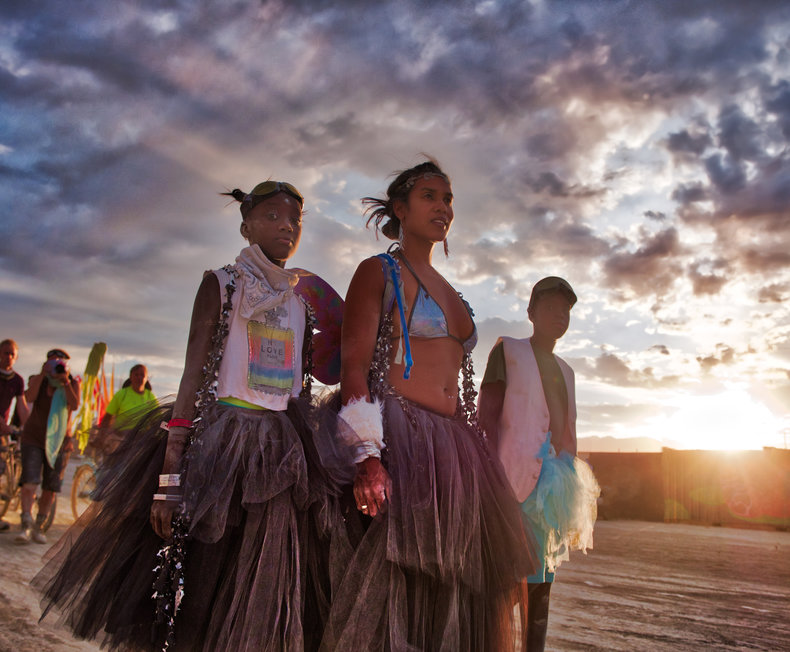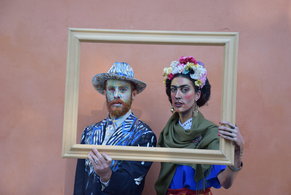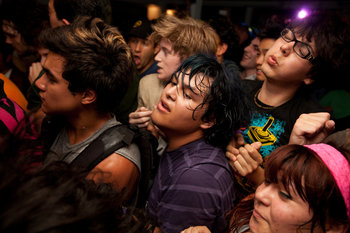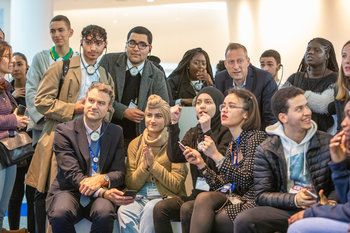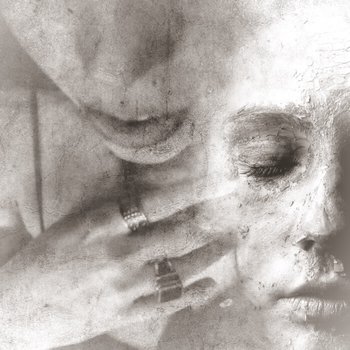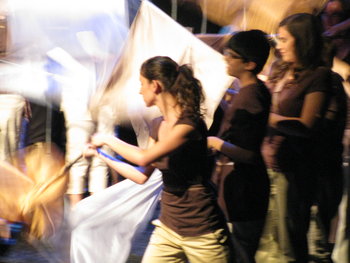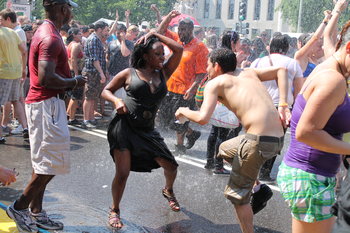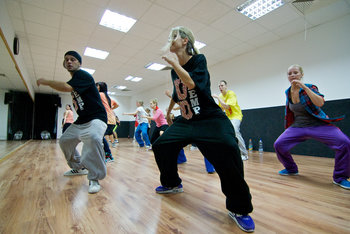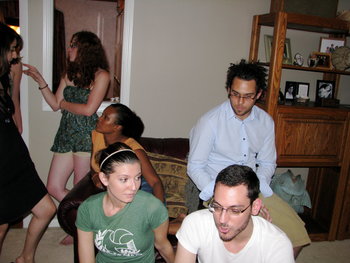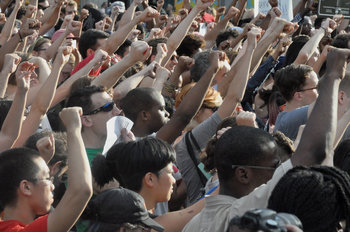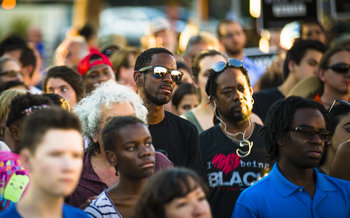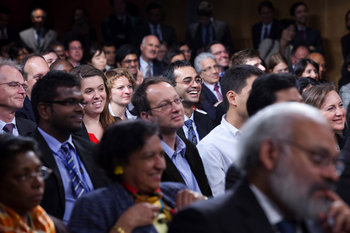|
| |
Social identity is the portion of an individual's identity that is related to membership in groups. People can also identify with personality characteristics, ideologies, concepts and physical characteristics that have little to do with group membership. The following are common examples of social identity.
Age Group | | City | Cultures | Disability | Ethnicity / Race | Family | Fandom | Friends | Gender | Hobbies & Interests | Language | Lifestyle | Memberships | Nationality | Neighborhood | Organizations / Teams | Politics | Profession | Religion | Residence | Schools | Sexual Orientation | Social Class | Sport | Subculture | Super Culture | Talents & Ability |
Ingroup FavoritismIngroup favoritism, or ingroup bias, is a tendency to be loyal and kind to those with who you identify.Outgroup FavoritismOutgroup favoritism is a tendency to treat perceived outsiders better than perceived insiders or to view their culture with greater admiration. For example, an American who sees American culture and society as deeply flawed but views foreign cultures in a completely positive light.Outgroup BiasOutgroup bias is a tendency to treat perceived outgroup members differently -- often in a way that is negative. For example, an individual who avoids sitting beside people they perceive as foreigners on a train. TribalismTribalism, in its modern incarnations, is the process of adopting loyalty to an ingroup and discriminatory attitudes towards out-groups. For example, fans of a sports team who view fans of other sports teams in an extremely negative light such that they are apt to treat them poorly or come into conflict with them.Ascribed StatusAscribed status is status that you didn't earn. For example, an individual who is proud of their identity such as nationality despite having played little or no role in the accomplishments and status of this group.Identity ImmersionThe experience of participating in aspects of your social identity. For example, contributing to a culture by participating in a dance festival.Social AcceptancePeople strongly desire social inclusion and respect known as social acceptance. Social identity is one way to feel that one belongs to something greater than oneself and to feel included and respected. The other way is to earn social acceptance with your individual behavior. Fundamental Attribution ErrorA tendency to see yourself as an individual but others in terms of their identity. For example, if you are late for a meeting, it is because you are busy. If someone else is late for a meeting, it is because of their identity such as their age group or profession. This is a type of bias whereby you fail to treat others as individuals.Mere Exposure EffectMere exposure effect is a tendency to view things favorably simply because you are familiar with them. For example, an individual who identifies with a music subculture after attending a single concert. Generally speaking, people can greatly expand their identity with openness and experience or can shrink it with a closed mind, bitterness and avoidance. Ultimately, an individual could simply identify with all of humanity.
Social Identity
This is the complete list of articles we have written about social identity.
If you enjoyed this page, please consider bookmarking Simplicable.
© 2010-2023 Simplicable. All Rights Reserved. Reproduction of materials found on this site, in any form, without explicit permission is prohibited.
View credits & copyrights or citation information for this page.
|
